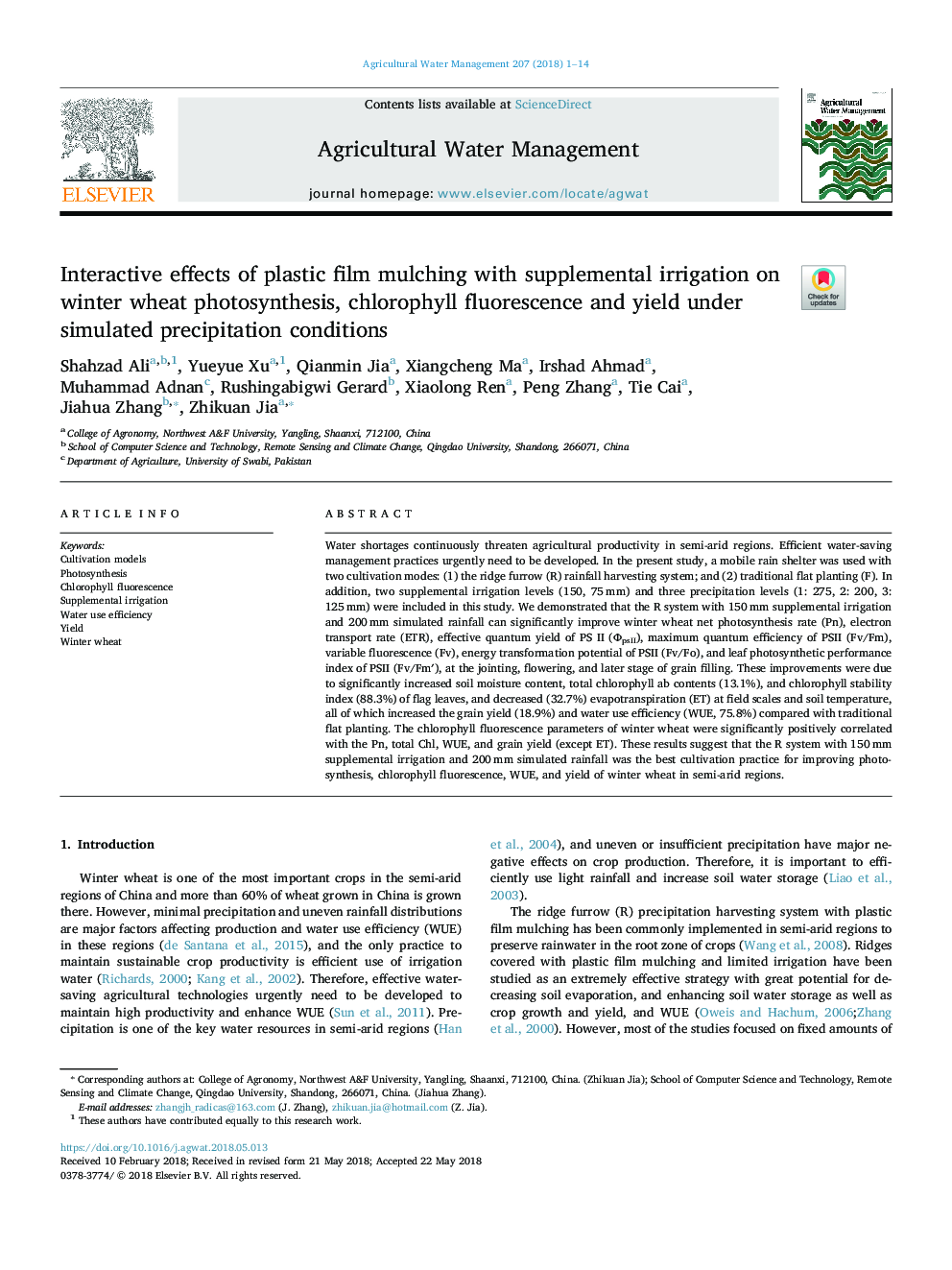| Article ID | Journal | Published Year | Pages | File Type |
|---|---|---|---|---|
| 8872819 | Agricultural Water Management | 2018 | 14 Pages |
Abstract
Water shortages continuously threaten agricultural productivity in semi-arid regions. Efficient water-saving management practices urgently need to be developed. In the present study, a mobile rain shelter was used with two cultivation modes: (1) the ridge furrow (R) rainfall harvesting system; and (2) traditional flat planting (F). In addition, two supplemental irrigation levels (150, 75â¯mm) and three precipitation levels (1: 275, 2: 200, 3: 125â¯mm) were included in this study. We demonstrated that the R system with 150â¯mm supplemental irrigation and 200â¯mm simulated rainfall can significantly improve winter wheat net photosynthesis rate (Pn), electron transport rate (ETR), effective quantum yield of PS II (ΦpsII), maximum quantum efficiency of PSII (Fv/Fm), variable fluorescence (Fv), energy transformation potential of PSII (Fv/Fo), and leaf photosynthetic performance index of PSâ
¡ (Fv/Fmʹ), at the jointing, flowering, and later stage of grain filling. These improvements were due to significantly increased soil moisture content, total chlorophyll ab contents (13.1%), and chlorophyll stability index (88.3%) of flag leaves, and decreased (32.7%) evapotranspiration (ET) at field scales and soil temperature, all of which increased the grain yield (18.9%) and water use efficiency (WUE, 75.8%) compared with traditional flat planting. The chlorophyll fluorescence parameters of winter wheat were significantly positively correlated with the Pn, total Chl, WUE, and grain yield (except ET). These results suggest that the R system with 150â¯mm supplemental irrigation and 200â¯mm simulated rainfall was the best cultivation practice for improving photosynthesis, chlorophyll fluorescence, WUE, and yield of winter wheat in semi-arid regions.
Keywords
Related Topics
Life Sciences
Agricultural and Biological Sciences
Agronomy and Crop Science
Authors
Shahzad Ali, Yueyue Xu, Qianmin Jia, Xiangcheng Ma, Irshad Ahmad, Muhammad Adnan, Rushingabigwi Gerard, Xiaolong Ren, Peng Zhang, Tie Cai, Jiahua Zhang, Zhikuan Jia,
